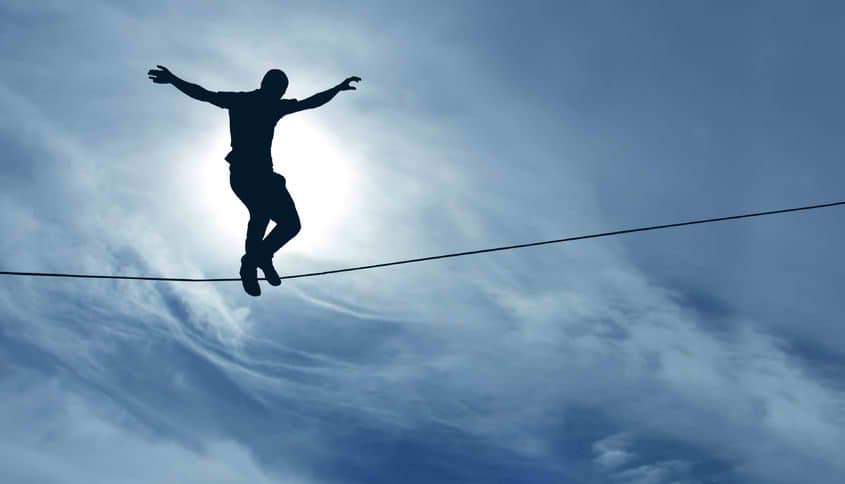234 total views

Homily for Tuesday of the 18th Week in Ordinary Time, 02 August 2022, Mat 14:22-36 (Reposted from 2020)
There is a bigger storm building up in the Gospel, bigger than the one that is happening in the Lake of Galilee. We are still in that same chapter of Matthew that began with the story of the execution of John the Baptist by beheading.
If Herod Antipas, the Governor of Galilee, had succeeded in getting rid of the pesky prophet John, he would certainly be going after those who were closely associated with him. And among these, Jesus would surely be next in line.
These are critical times; and word had just been sent to Jesus about it. The most logical thing for Jesus to do in this hot political atmosphere is to chill down a little. Matthew tells us Jesus actually decided to withdraw in a boat to a secluded place but people followed him, bringing the sick to him. He didn’t have the heart to dismiss them because they had come from far away places by foot. So he attended to them. Not only did he pray over them, he even gave them a big banquet from five loaves and two fish.
Our Gospel today is about what happens after that feeding story. It is quiet now. He has sent off his disciples to go ahead of him to the other side of the lake. He has already sent the crowd home; now he can finally be alone. And so instead of getting into the other boat that was prepared for him, he goes up to the mountain to have some solitude in prayer—both to grieve the loss of John, and to confront his fears over the political storm that has led to John’s execution; he is fully aware that he could be next in line.
We have many fears ourselves. When confronted by them we become anxious. It is a normal thing to be worried or anxious, especially when we deal with our uncertainties such as during this time pandemic. But when we are already unable to sleep, when we cannot function normally anymore, when we turn paranoid or fall into depression, then we’re already dealing with a mental health issue called an “anxiety disorder.”
The Gospel tells us Jesus has a unique way of confronting his fears; he does it through prayer. (Remember he would also do it at the Garden of Gethsemane.) They say when we are threatened, we seek the company of others for support. So why does he want to be alone? Jesus, seeks solitude in prayer, not to be alone, but precisely to be in the company of his Father in Heaven. It is through prayer that he is able to CONQUER FEAR. Why is prayer an effective way of dealing with our fears? Let me propose two answers: firstly, it enables us to see things as they are and how God is at work in them. Secondly, prayer enables us to see from God’s perspective.
First: prayer enables us to see things as they are. Fear tends to exaggerate then; it makes us see ghosts. It tends to blow things up beyond proportion. Remember how terrified the Israelites were, with Goliath? Their reaction was, “He is so big, how can we defeat him? There’s one author who suggests that when David saw Goliath, he said to himself, “He is so big; I cannot possibly miss my target.”
Second: prayer nurtures faith, which helps us conquer our fears by changing our perspective. From the mountain experience, we begin to relativize our fears in the context of the larger horizon. Look at human inventions, they are mostly in response to our experiences of limit situations. People conquered their fear of the ocean by inventing boats, galleons and steam ships. We conquered our fear of the wind by inventing airplanes and helicopters. Athletes conquer their fear of danger by developing gymnastic agility. How many performing artists have had to conquer their stage fright before they gained confidence to perform before an audience?
One little traumatic experience with an object or an insect can make a blind impress on our consciousness. We call them phobias, from the Greek word phobos, which means FEAR. Fear makes us unable to see a spider as a spider, or a snake as a hapless reptile that is as afraid of you as you are of it.
In the Gospel, Peter receives a mentoring in conquering his own fear. His companions see a ghost but he hears that it is Jesus. Instead of drawing away, he draws near by walking to his direction, on water, and is actually able to make a few baby steps. And all Jesus said was, Come!
Prayer is a response to Jesus’ invitation to come to him, to learn from him to do as he does. You want to find rest, come and learn to be gentle and humble of heart. You want to conquer your fear of the storms of life, come to me. Stay focused! You are an image and likeness of the Great I AM who has power over creation. You are also a child of God. His assurance is, “if I can carry my cross, so can you; if I can walk on water, so can you. You have to have faith, not in yourself, but in the God who will work through you.”
In prayer, Jesus invites you to think of yourself as a toddler who is being taught by his father to walk, or a little boy to ride on a bicycle or to dive into a swimming pool, or to hold a bird gently in your hand. Sometimes, he tosses you up in the air and like an infant. Instead of reacting in fear, he screams with delight, knowing that his father is down there waiting to catch him in his hands.


















